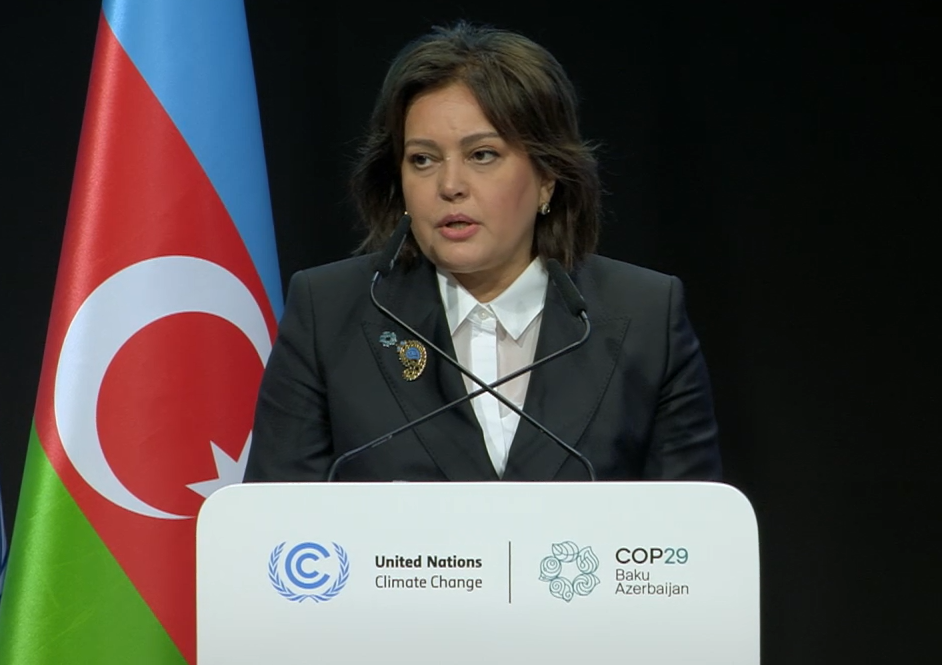|
|
TODAY.AZ / Analytics
Russian FM’s visit to Azerbaijan outlines important foreign policy trends
19 June 2014 [14:38] - TODAY.AZ
 By Elmira Tariverdiyeva - Trend:
By Elmira Tariverdiyeva - Trend:Russian Foreign Minister Sergei Lavrov's this week's visit to Azerbaijan outlined two very important foreign policy trends.
First, Baku continues maintaining a balance between the West and Russia, and observing an almost complete political balance between the recently polarized centers of power.
Second, despite new integration projects and challenges in the region, Russia is still interested in cooperation with Azerbaijan, even more than with Armenia which agrees to all of Moscow's conditions.
The Kremlin's reasons are obvious. Today, the West and the U.S. are doing everything to isolate Russia diplomatically due to its position on the Ukrainian crisis. Strengthening the relations with post-Soviet countries, especially those in which the West is interested, can be Moscow's trump card. That's why the West has recently demonstrated a great desire to get closer to Baku. Exemplified by European Commission president Jose Manuel Barroso visit to Azerbaijan a few days before Lavrov.
Russian Foreign Minister Sergei Lavrov, President Aliyev and his Azerbaijani counterpart Elmar Mammadyarov discussed key issues on the bilateral and international agenda, including the legal status of the Caspian Sea, the Nagorno-Karabakh problem, the upcoming Azerbaijani-Russian forum in Gabala as part of a two-day visit to Baku.
Lavrov's statement that Russia supports and does not doubt in Armenia's joining the Eurasian Union as part of the UN-recognized borders was an important message to Baku.
While emphasizing this fact, Lavrov apparently wanted to remove Baku's discontent that Armenia intends to join the Eurasian Union before the Nagorno-Karabakh conflict settlement.
This is not surprising, since Armenia's accession to the EAU may give them opportunity to use the privileges of membership in the Union in Azerbaijan's occupied territories, as these territories are currently controlled from Yerevan and economic activities are carried out with Armenia's national currency there.
Nevertheless, the approach of the leaders of EAU countries to this issue, as well as the abovementioned words of Lavrov give grounds to say that Azerbaijan's interests will be protected.
Moreover, the minister made it clear that Russia would be glad to see Azerbaijan in its integration projects, but it doesn't insist on such a scenario. Asked about the prospects of Azerbaijan's accession to the Eurasian Economic Union, Lavrov said there has not been an official invitation for Azerbaijan to join the EAU, but Moscow is always glad when its partners show interest in the Eurasian area.
Such loyalty to Azerbaijan's choice shows that Russia really respects its partner in the South Caucasus region and tries to enlist Azerbaijan's support in a number of topical foreign policy issues.
Of course, the two sides couldn't but touch upon the Nagorno-Karabakh conflict during the negotiations. Lavrov's upcoming visit to Yerevan, where he can well discuss the proposals that were on the agenda in Baku, is of great importance.
Regarding the settlement of the Nagorno-Karabakh conflict, Lavrov and Mammadyarov also talked about a possible meeting between Azerbaijani and Armenian presidents.
"We are now waiting for France's response for organizing this meeting," Mammadyarov stressed.
Concluding the meeting, the ministers pointed out that the negotiations were held in a good and positive vein; and it was agreed that the relations between Azerbaijan and Russia are based on the principles of friendship and good neighborhood.
It means that the relations between the two countries will continue to develop on the principles of balance, respect as well as taking into consideration the positions of each other. And, this is something lacking in some post-Soviet countries relations with Russia.
Elmira Tariverdiyeva is the Trend commentator
URL: http://www.today.az/news/analytics/134639.html
 Print version
Print version
Views: 3575
Connect with us. Get latest news and updates.
See Also
- 04 June 2025 [20:11]
Armenia struggles to balance peace efforts with domestic instability - 03 June 2025 [20:35]
Lachin emerges as gateway of peace and partnership - 03 June 2025 [19:50]
Ukraine’s deep strike raises concerns for future of high-tech warfare - 03 June 2025 [08:30]
President Aliyev unveils vision for post-hydrocarbon future at Baku Energy Week - 02 June 2025 [20:22]
Ukraine’s drone strike on Russian assets sparks global nuclear concerns - 31 May 2025 [08:30]
World Bank supports Azerbaijan’s climate transition with carbon market roadmap - 30 May 2025 [19:22]
From church to streets: How Garabagh clique hijacked Armenia’s church - 29 May 2025 [13:45]
Washington reaffirms strategic ties with Baku in Independence Day message - 29 May 2025 [08:00]
Grand diplomacy: Independence Day turns into regional display of power - 28 May 2025 [08:30]
Hydropower takes lead in sustainable transformation of Garabagh
Most Popular
 The Armenians are being led by the nose by the World Council of Churches
The Armenians are being led by the nose by the World Council of Churches
 Azerbaijani diaspora leaders in Belgium meet to boost unity and outreach
Azerbaijani diaspora leaders in Belgium meet to boost unity and outreach
 Azerbaijan to lead sustainability efforts ahead of 2026 World Environment Day & Urban Forum
Azerbaijan to lead sustainability efforts ahead of 2026 World Environment Day & Urban Forum
 Roundtable in Lachin highlights Intercultural cooperation among CIS members
Roundtable in Lachin highlights Intercultural cooperation among CIS members
 Garegin is being used up
Garegin is being used up
 Azerbaijani Prime Minister Ali Asadov attends CIS Heads of Government Meeting in Dushanbe
Azerbaijani Prime Minister Ali Asadov attends CIS Heads of Government Meeting in Dushanbe
 Ombudsman highlights human rights values at “Silenced Voices” event in honor of Huseyn Javid
Ombudsman highlights human rights values at “Silenced Voices” event in honor of Huseyn Javid
